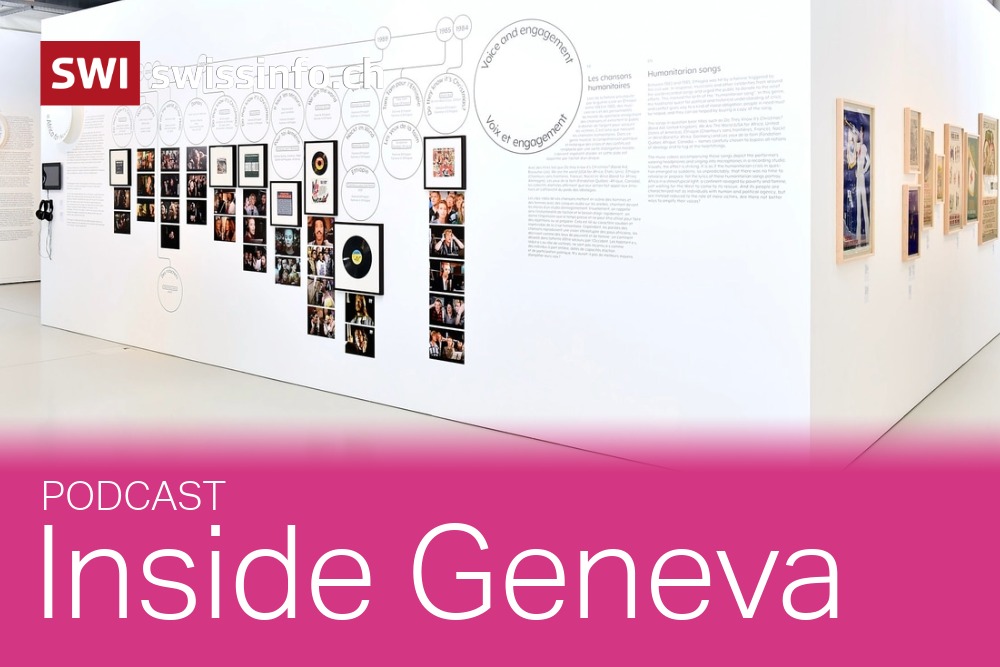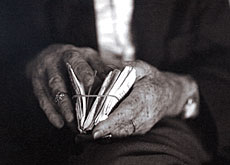
Scientists hail malaria breakthroughs

Scientists in Switzerland have been involved in two separate breakthroughs which could help the fight against malaria.
Both involve artemisinin, an ancient Chinese herbal extract, which has been used for centuries to treat the disease.
Malaria kills about one million people worldwide each year, many of them children. The parasitic disease, which is spread by mosquitoes, is present in 90 countries in the world but is particularly rife in sub-Saharan Africa.
Scientists have long known about the anti-malarial properties of artemisinin, which works by attacking the malaria parasite. It has also been found to be particularly effective against strains of the disease that have become resistant to drugs.
Artemisinin-based drugs are available but are expensive to produce, putting them out of reach of most developing countries
Breakthrough
But now an international team of researchers have developed a new synthetic version of Artemisinin, which acts in the same way as the herb but at a fraction of the cost.
The research, which involved both private and public organisations, was coordinated by a Swiss-based foundation, Medicines for Malaria Venture (MMV). Its Swiss partners included the Swiss Tropical Institute, the pharmaceutical giant, Roche, and biotechnology company, Basilea Pharmaceutica.
Scientists said that laboratory trials had shown that had the drug, called OZ, was as effective as artemisinin.
“This could be the biggest breakthrough in malaria treatment of our generation,” said MMV in a statement.
The research, which has been published in the scientific journal “Nature”, has now entered human clinical trials.
The natural way
In a separate development – and just two days before the development of the OZ drug was announced – Conthey Aboroculture and Horticulture Centre published another important artemisinin-based result.
The centre, a subsidiary of the Federal Agronomy Research Centre at Changins in canton Vaud, this time used Artemisia annua, also known as sweet wormwood, the plant from which Artemisinin is extracted.
After ten years of research, scientists managed to breed a variety of Artemisia containing a concentration of the anti-malaria molecule which is ten times higher than normal.
“One hectare planted with our Artemisia produces three tons of leaves, from which we can extract 45 kilos of artemisinin,” said Charly Darbellay, an agronomist at the Conthey Centre.
Pharmaceutical industry
Darbellay says that the pharmaceutical industry is very interested in the move towards using natural, rather than synthetic, sources.
He said that the Conthey Centre was also collaborating with a pharmaceutical company to extract a plant-based drug which could provide a cure for osteoporosis.
“Substances obtained by natural methods have fewer side effects than chemical preparations,” said Darbellay.
The MMV researchers designed their molecule in the laboratory, reproducing part of the structure of artemisinin.
This chemical “bullet” interacts with the iron in human haemoglobin to release a deadly substance that kills the parasites that have been transmitted into the blood by mosquitoes.
But Darbellay remains cautious and says it is likely to be a long time before the OZ drug is ready for use in patients and can be distributed to those who need it the most in the world.
swissinfo
A child dies of malaria every 30 seconds.
Ninety per cent of these deaths occur in sub-Saharan Africa.
The epidemic costs African countries an estimated $12 billion a year.
Scientists have developed a new anti-malarial drug, which is a synthetic version of artemisinin, an ancient Chinese remedy.
A team of Swiss agronomists has bred a variety of Artemisia containing a very high concentration of the anti-malarial ingredient.
Artemisinin is one of the key drugs used in to fight strains of drug-resistant malaria.

In compliance with the JTI standards
More: SWI swissinfo.ch certified by the Journalism Trust Initiative








































You can find an overview of ongoing debates with our journalists here . Please join us!
If you want to start a conversation about a topic raised in this article or want to report factual errors, email us at english@swissinfo.ch.